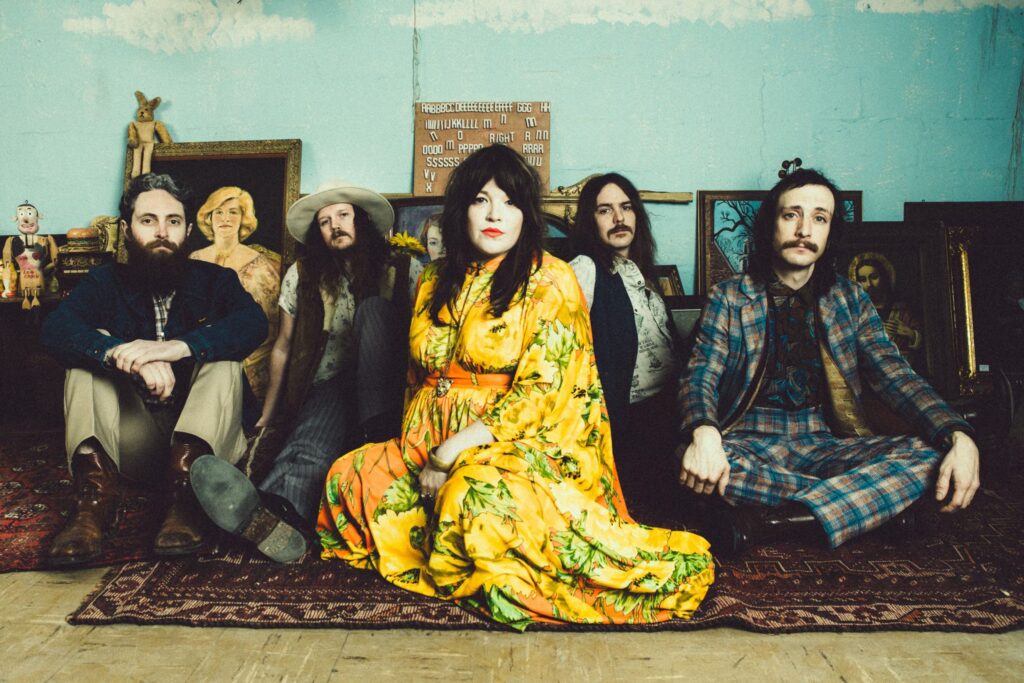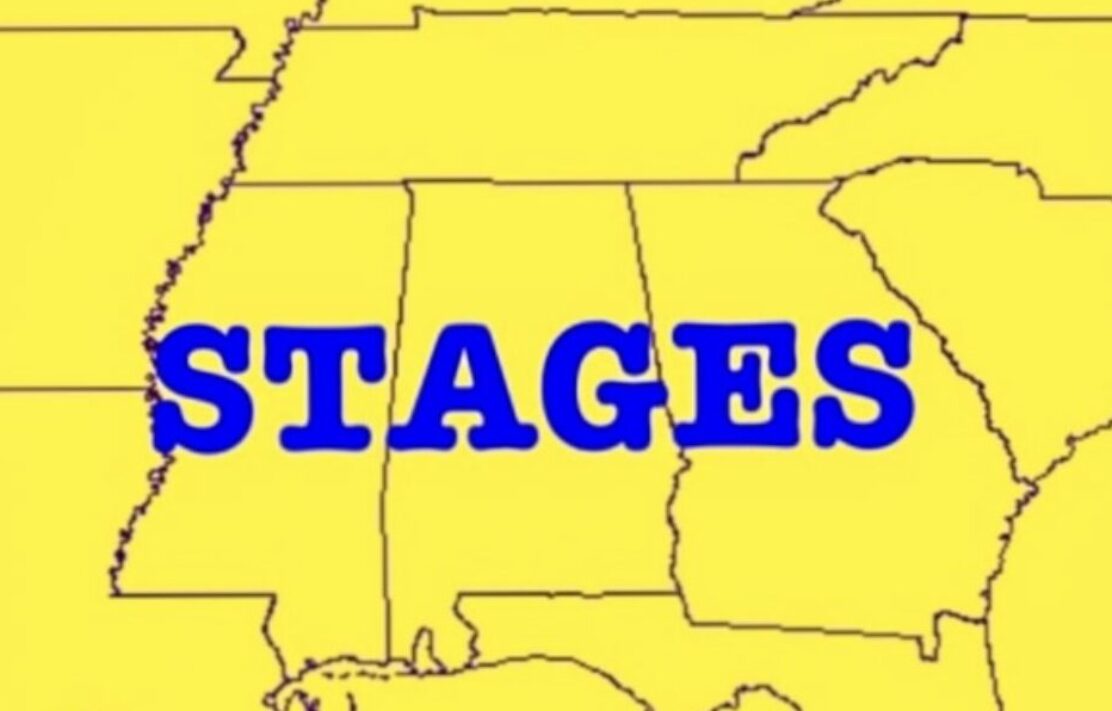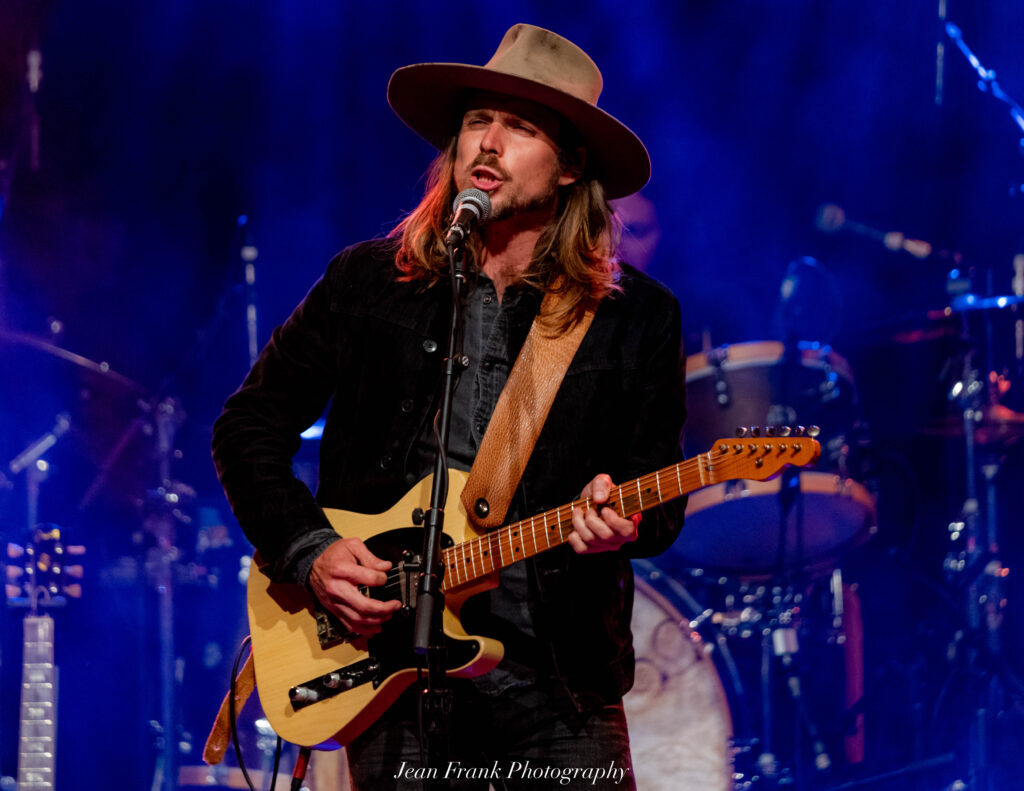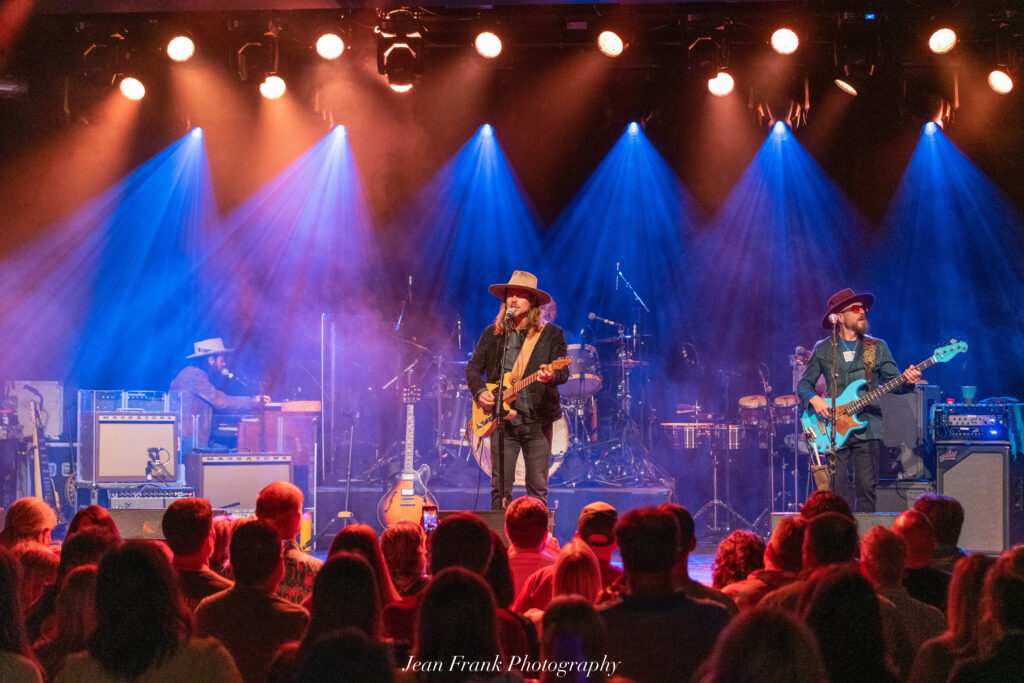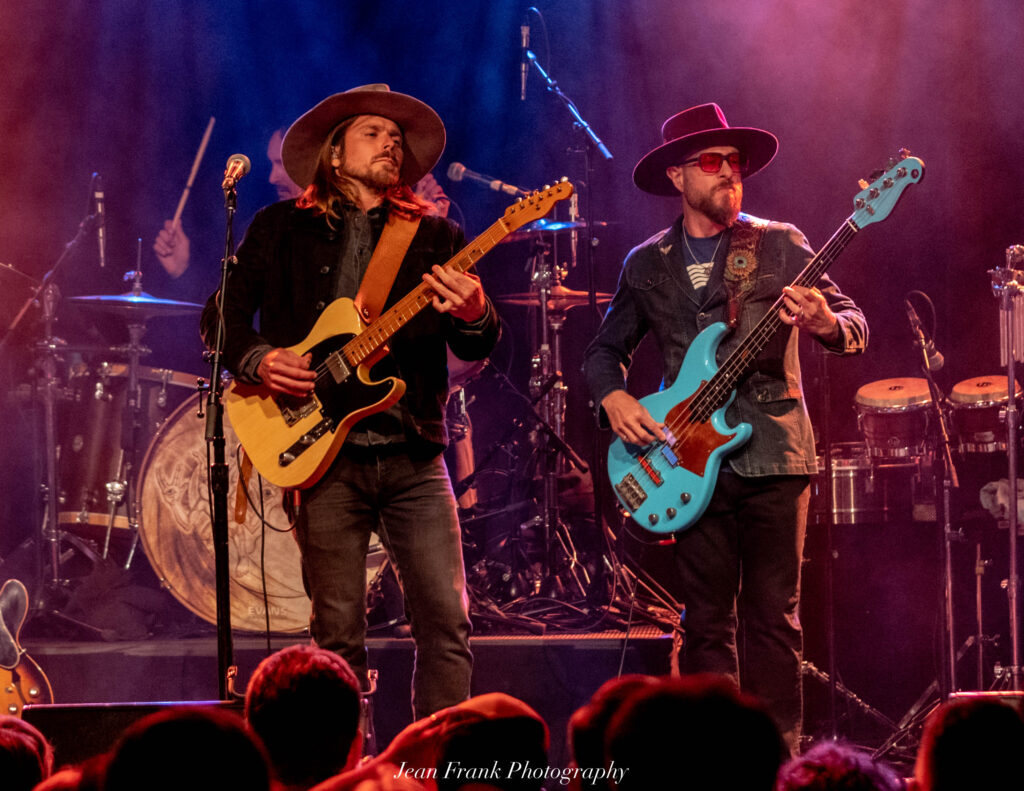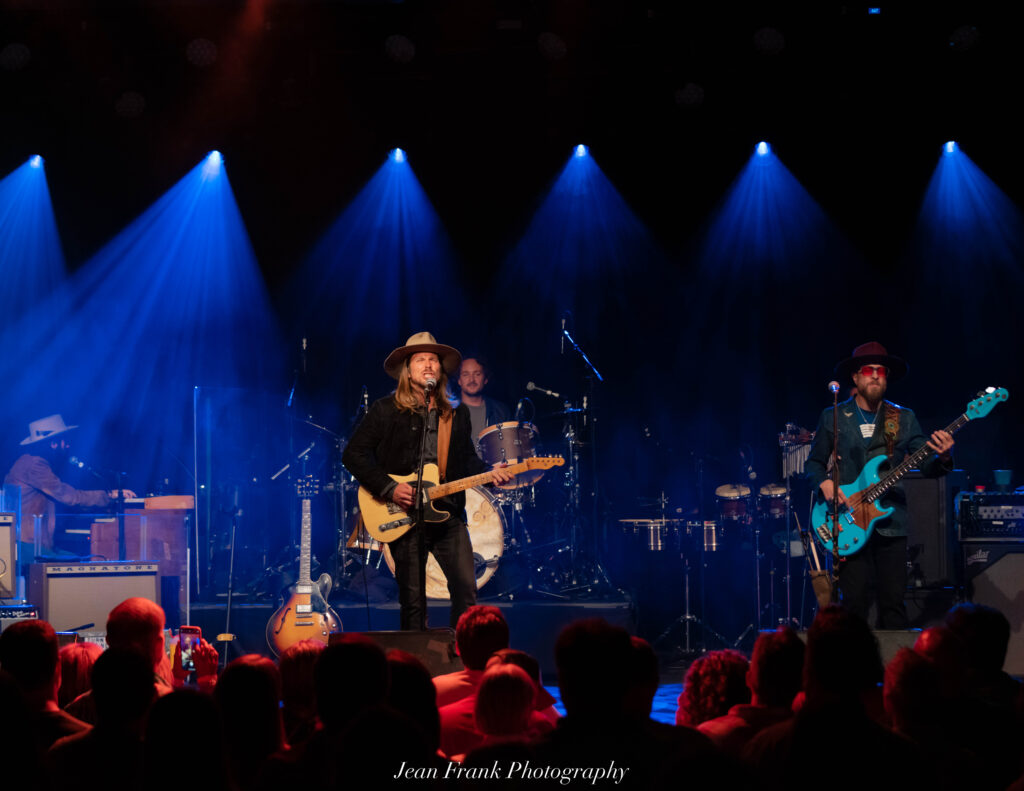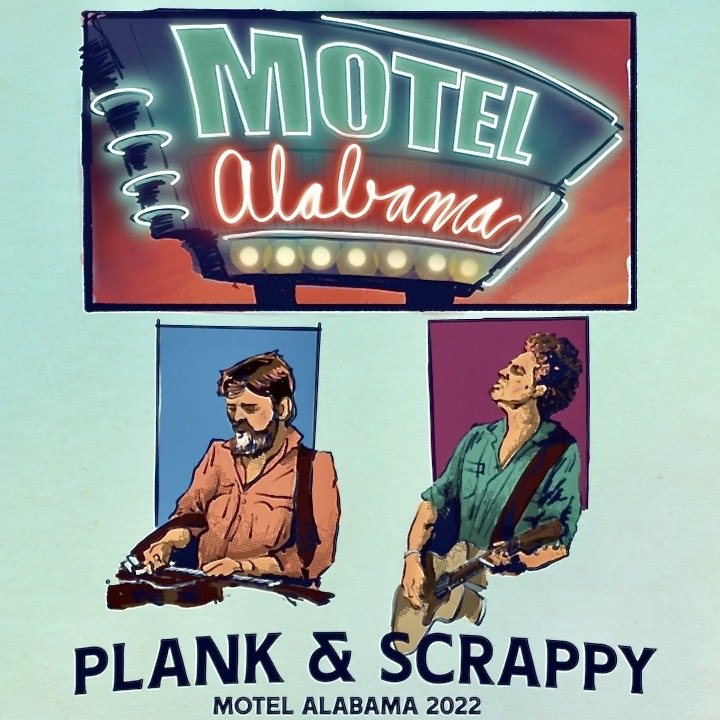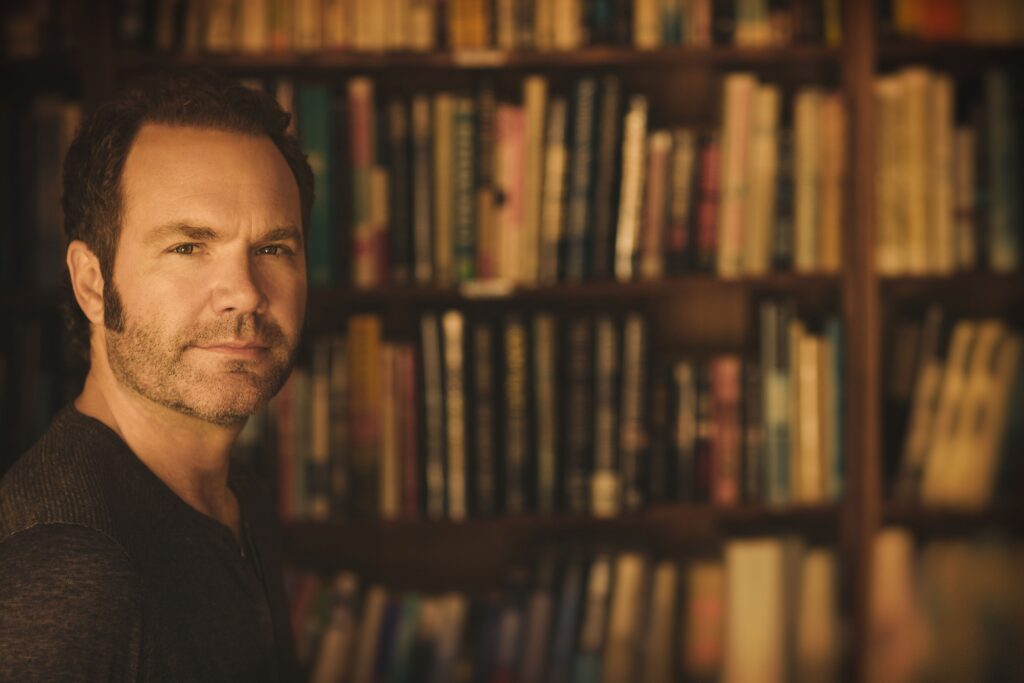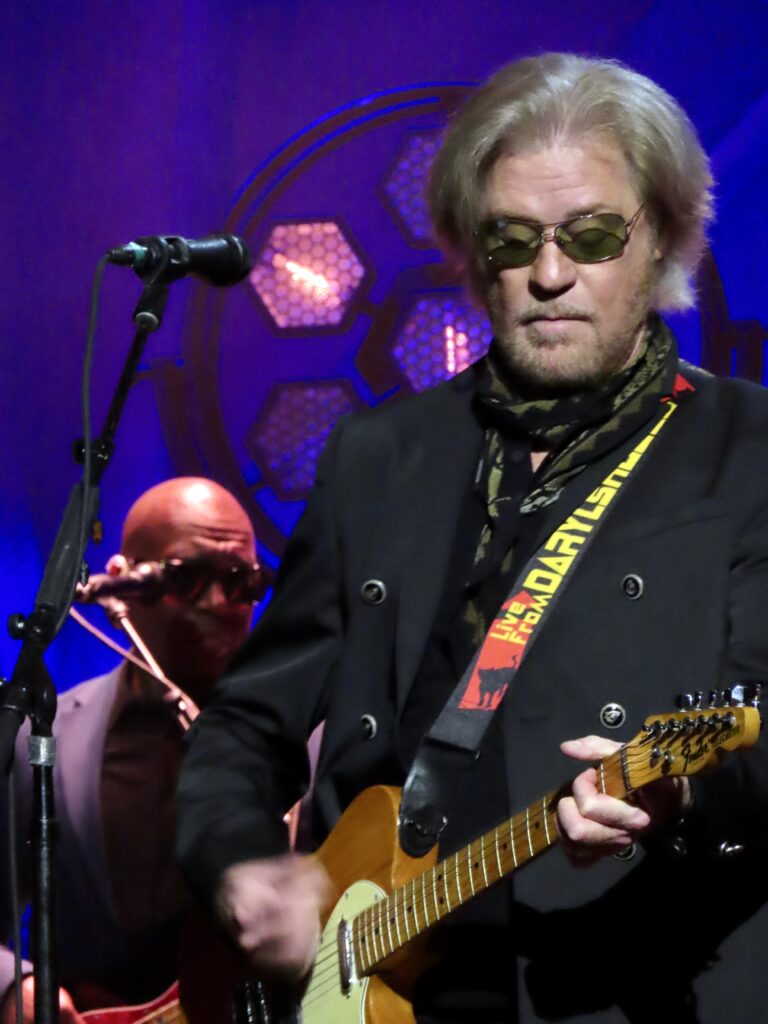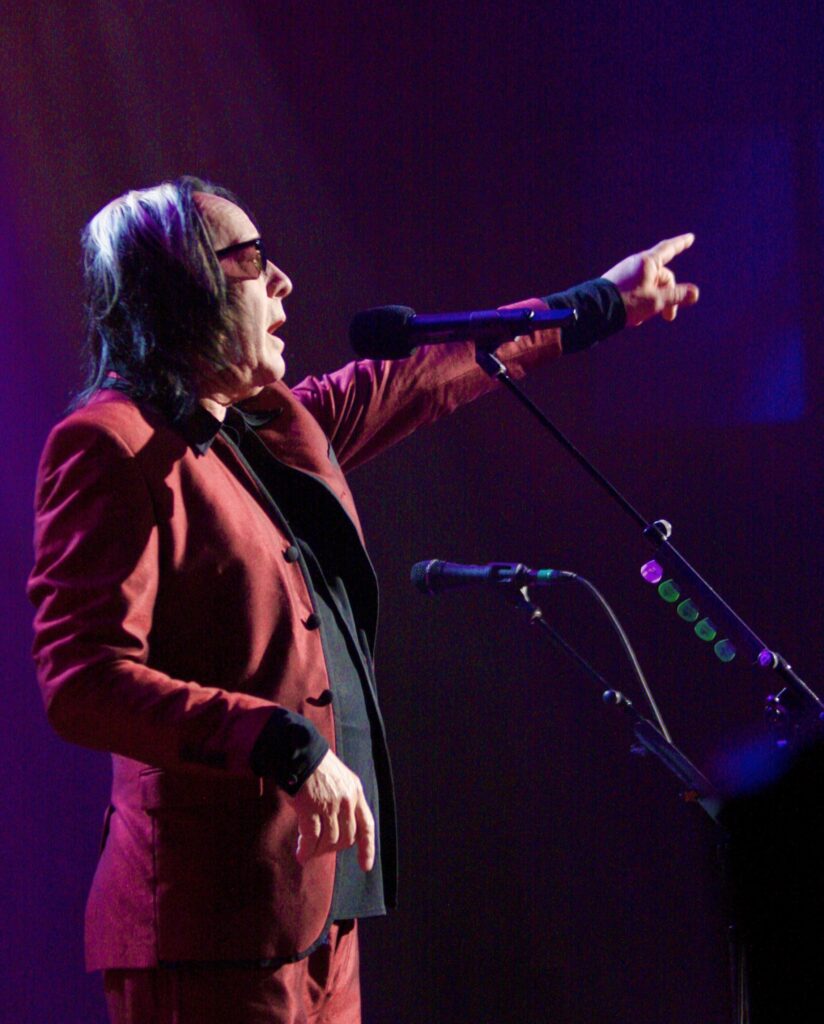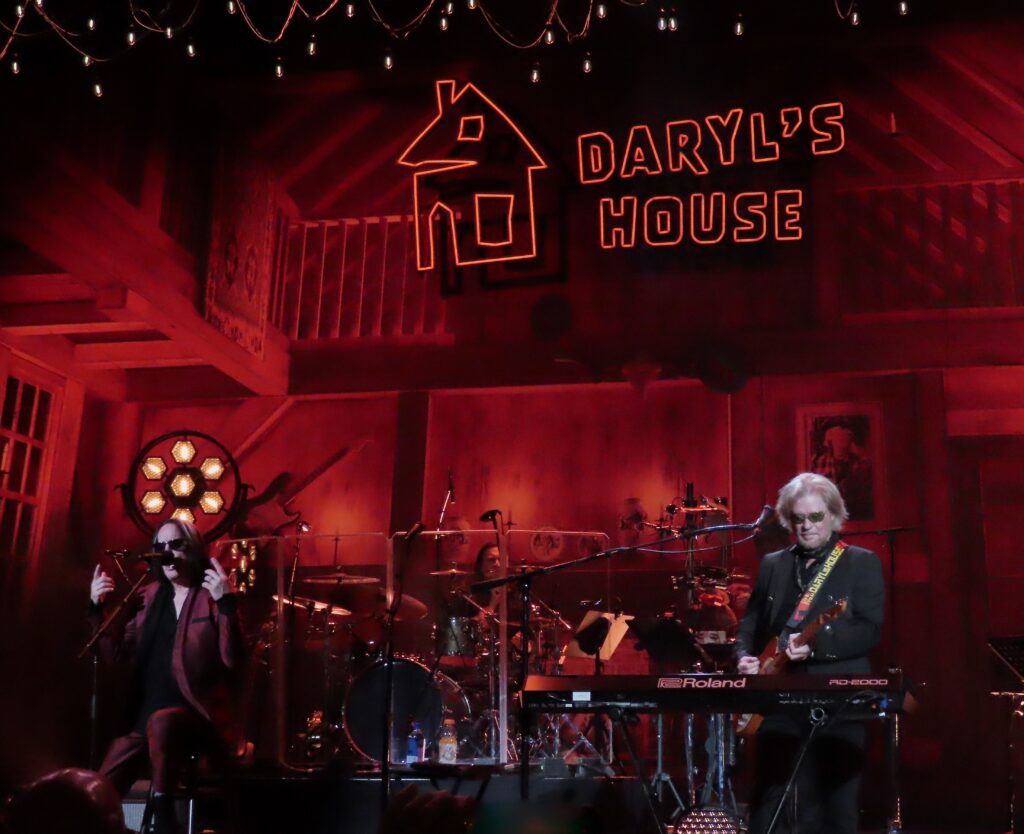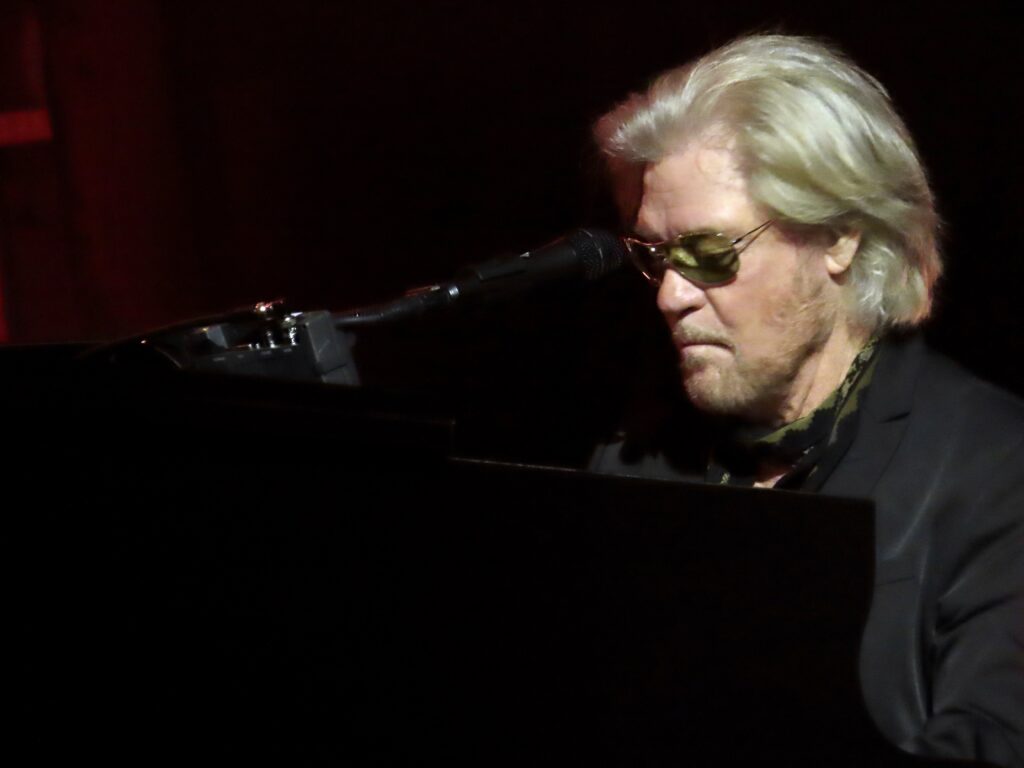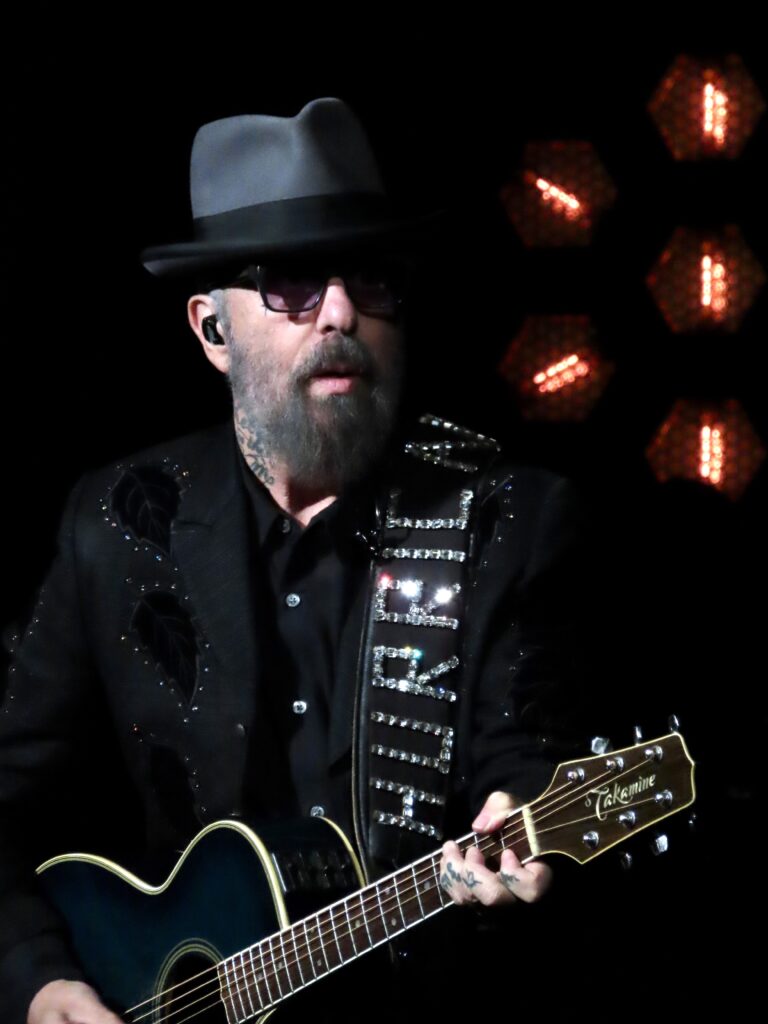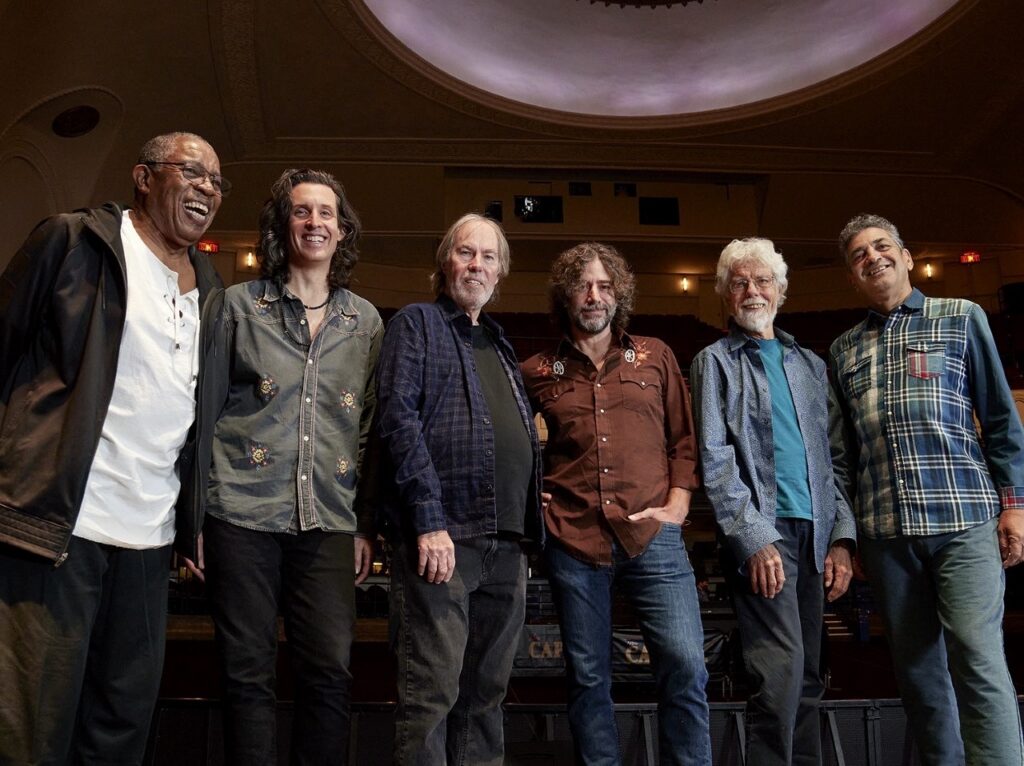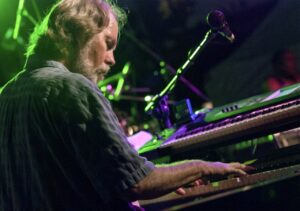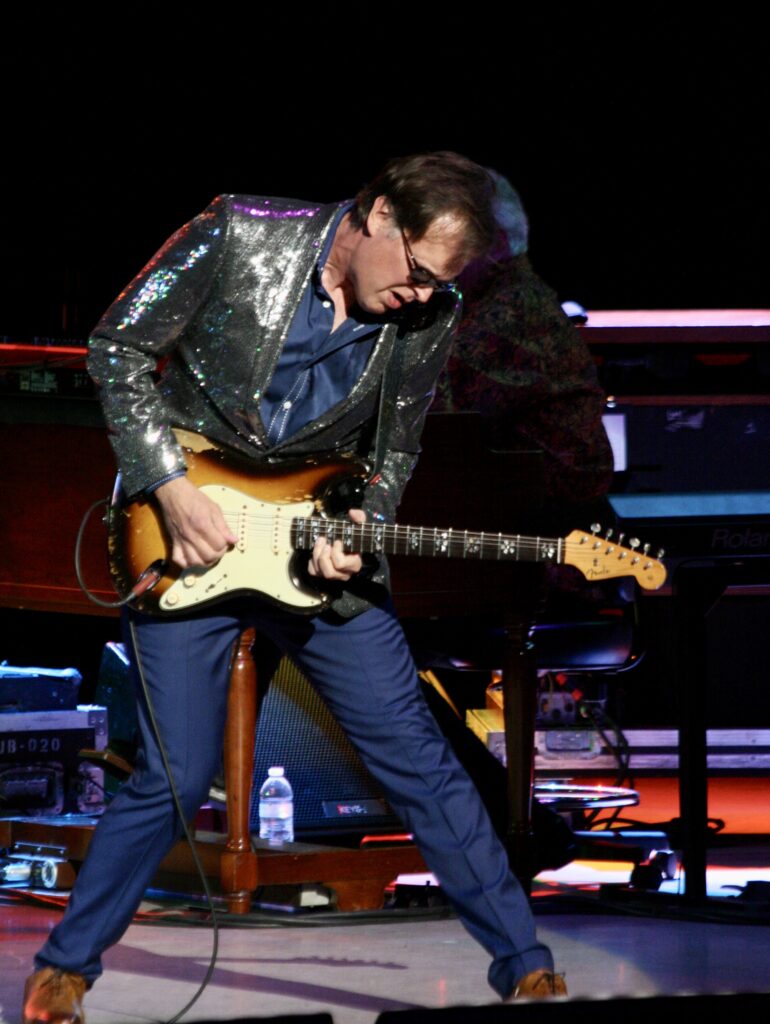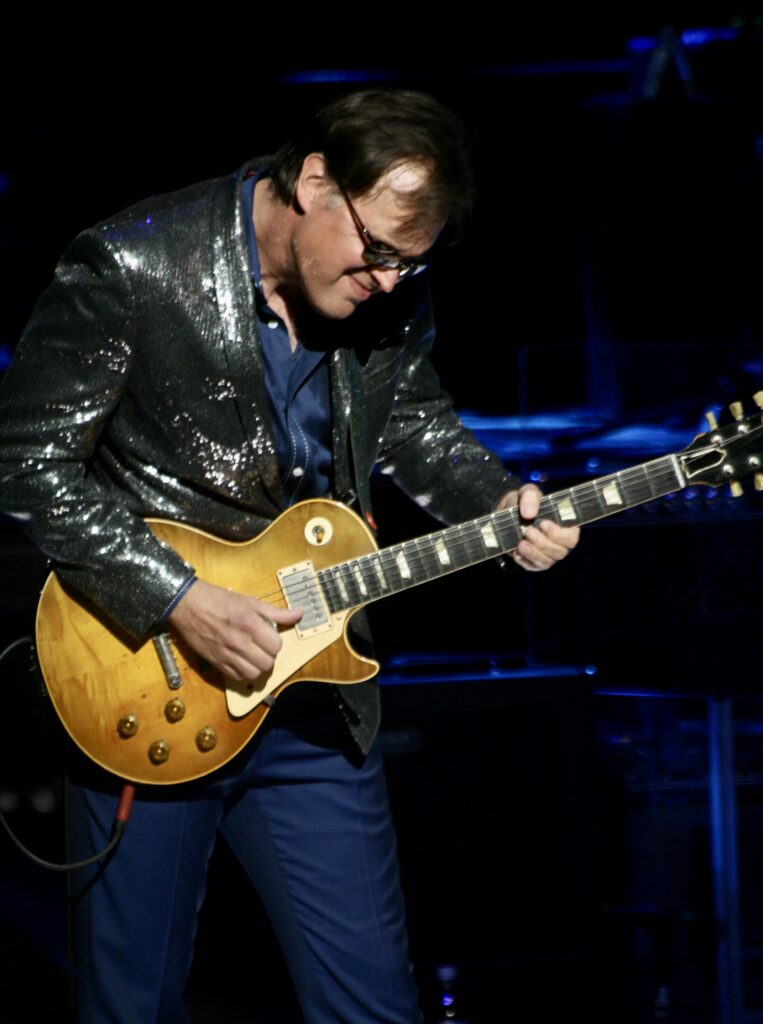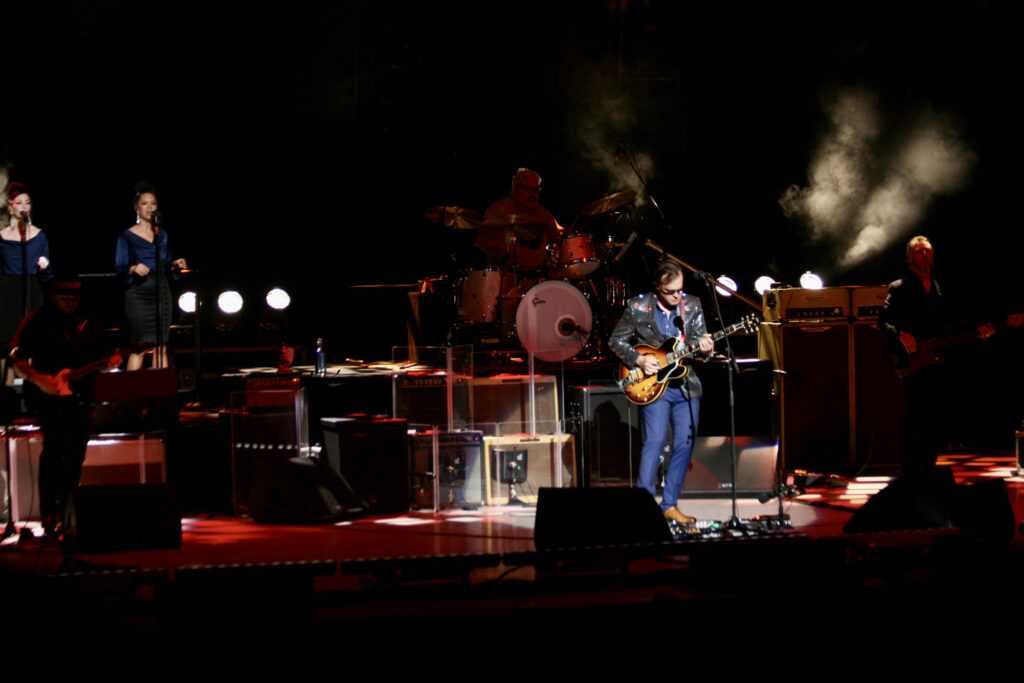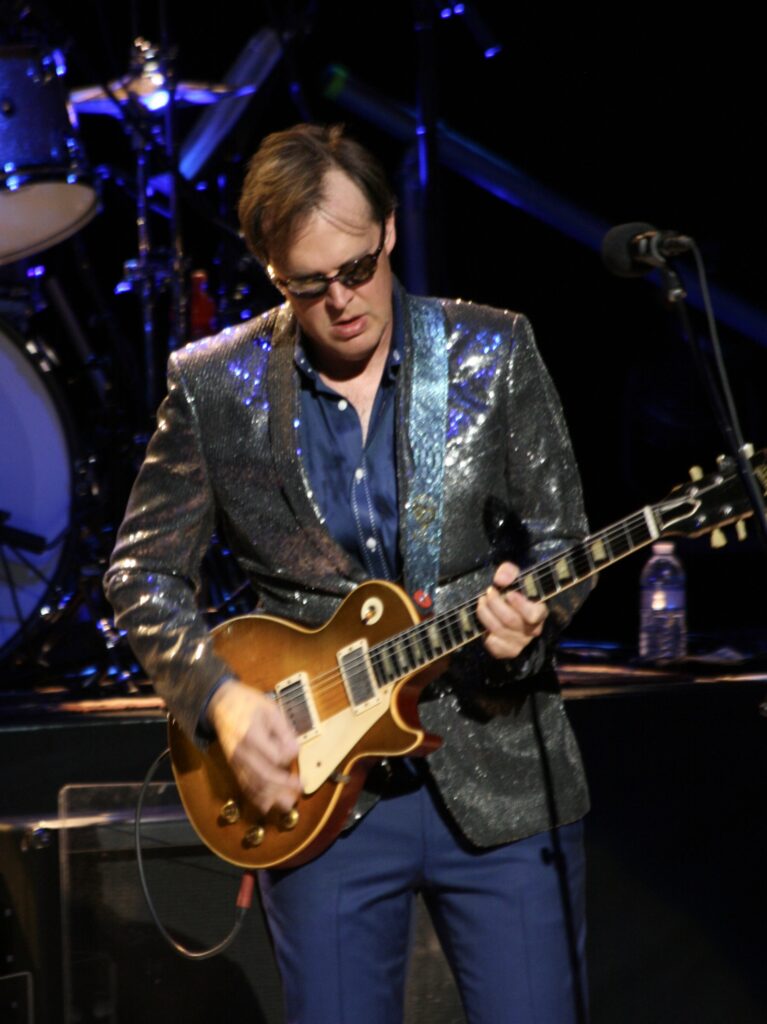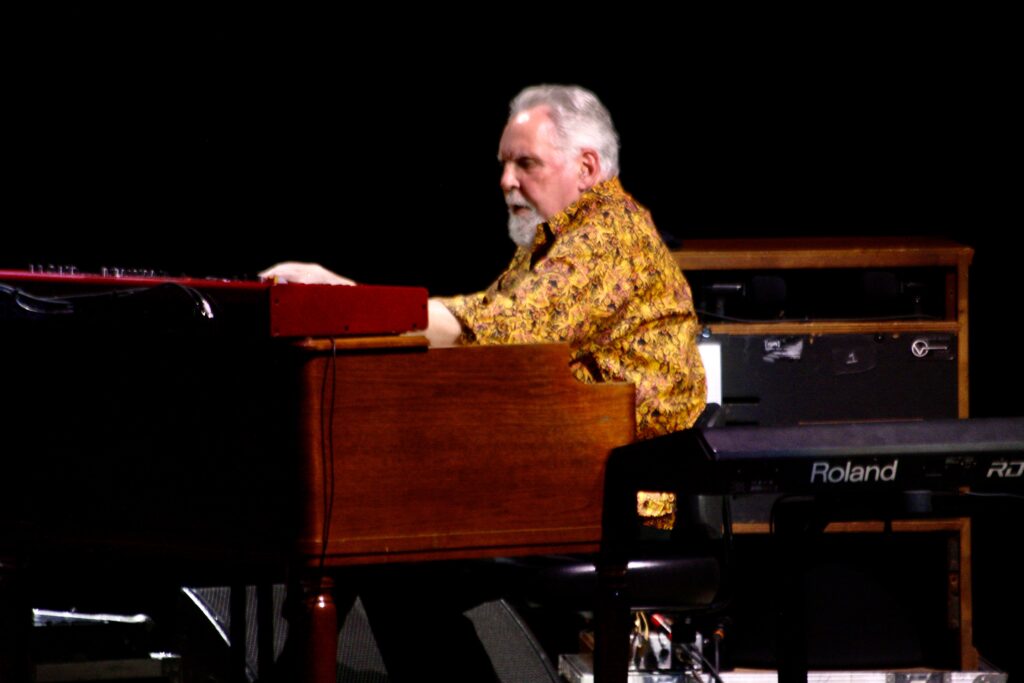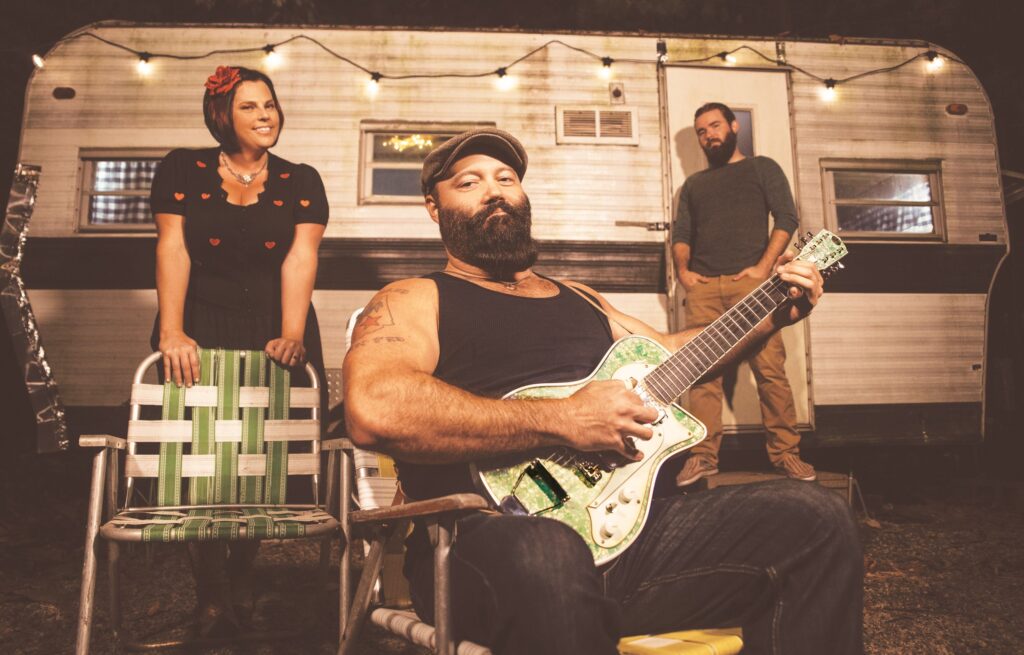By Brent Thompson
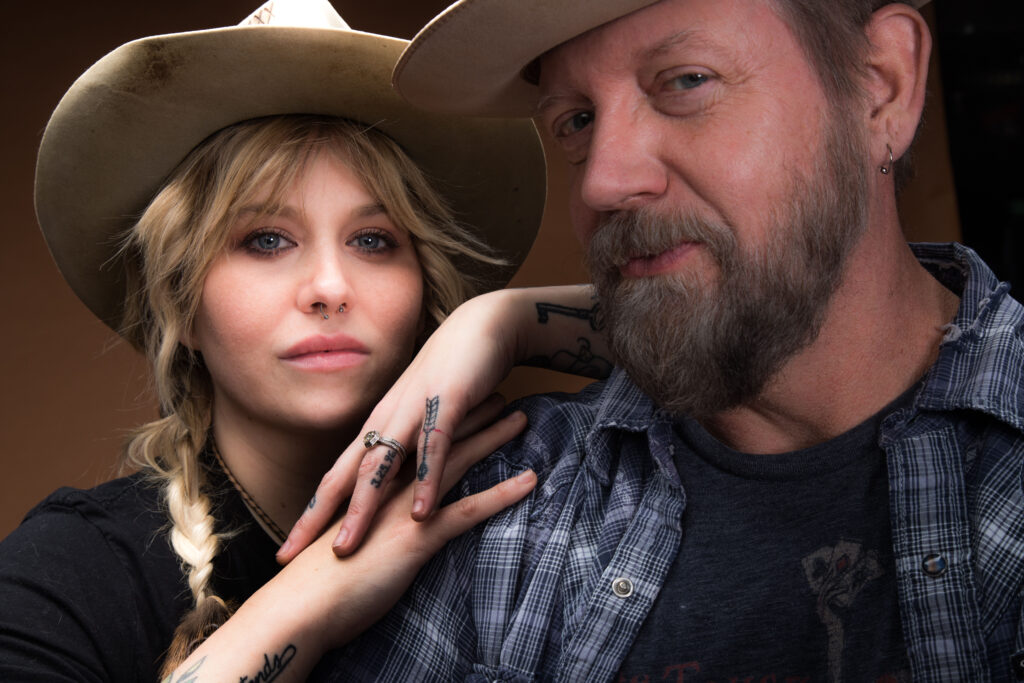
Photo Credit: Lindsay Garrett
Country music has had no shortage of stellar duets that shared lives both on and off the stage. Tandems including George and Tammy, Johnny and June and Glen and Tanya quickly come to mind in this esteemed category. The Atlanta-based duo The Waymores – Kira Annalise and Willie Heath Neal – continue in that team tradition and will release its sophomore outing, the timeless-yet-timely Stone Sessions, on April 8 [Chicken Ranch Records]. On Saturday, February 19, The Waymores will perform at Birmingham’s Dave’s Pub. Recently, the duo spoke with us by phone from their Atlanta home.
Southern Stages: Kira and Willie, thanks for your time today. We are really enjoying Stone Sessions. How did the album’s material take shape?
Kira Annalise: We wrote a lot of Stone Sessions during quarantine. That’s not to say that some of those ideas hadn’t been around for a while – they just kind of came to fruition during quarantine. A lot of songs, like “Road Worn,” is very quarantine-heavy – it’s all about the feelings that came out of being trapped in the house and not being able to do what we love doing. A lot of them came to light during the lockdown.
Willie Heath Neal: There are a couple that kind of popped out like “Heart Of Stone.” Kira was going through a hard time being a parent and I was thinking about how much she is always giving, giving, giving – I just picked up the guitar and wrote that song. The same went for “Die Right Here” – I just started kicking around this idea [about] people that always say they’re going to do something and never do and and I wrote a chorus and half a verse and within 30 minutes we had a song. Some of them took a long time and some of them just popped right out.
Southern Stages: You already touched on my next question with your last response, but I was curious if you used the lockdown period as a prolific time or time to rest. It sounds like you used that time to be productive.
Willie Heath Neal: Yes, and I think a lot of our peers did as well. Once the quarantine was done, everybody had new albums ready to go.
Kira Annalise: Yeah – what can else can you do with all this free time? Not all of it was prolific – we tried to live it up while we had some time off. We came from touring about 200 days a year and we were set to step foot on a plane two days after everything hit – we were about to do a U.K. tour. They started cancelling flights and cancelling travel and everybody thought “Oh, it’s going to be a couple of weeks or a month.” We were bummed about that one tour and then we had to settle into this new place of being at home and not knowing what to do with all of our free time, so we just wrote.
Southern Stages: How would you describe your songwriting process? Do you sit down together, bring ideas to each other or finish songs on your own?
Willie Heath Neal: Yes [laughs]. From my side of this – and Kira can give hers – I had a career before we started The Waymores and I had about five albums out as Willie Heath Neal and I had just hit a wall with songwriting – I thought I was a halfway decent songwriter and I hadn’t written anything in years. Kira was writing all these great songs and then I thought I’d said everything I had to say and I was really sad about it. Then I would come up with a line and she would add a line and, next thing you know, I was writing again. So, she gave my songwriting CPR and the Heimlich Maneuver all at the same time. Now, it’s a process – I’ll either get a melody or a couple of lines and play it for her and she’ll just spit out another line. So, it’s a little bit from column A and column B. We have a whole catalog on her phone – we’ll write a lyric going down the road or one of us will say something and we’ll say, “That’s a song lyric – write it down.” Sometimes they pop out and sometimes we craft them.
Kira Annalise: It’s rare that we sit down specifically to write. To have a writing session – that’s not something we purposely do, but we are never not writing songs if that makes sense. We’re always thinking about songwriting and writing in our heads. Willie is more one to craft some pieces. I’m the one that just verbally throws everything out and says, “Make it into something gritty” [laughs]. He’ll do some things own his own and bring them to me and I’m like, “Let’s cancel all our plans for the next two nights.”
Willie Heath Neal: When the song starts and we know we’ve got something, it’s like giving birth – you stop everything. She’s right – we’ve cancelled plans.
Southern Stages: Do you find that songs are still tweaked even after you carry them into the studio for recording?
Willie Heath Neal: Absolutely.
Kira Annalise: This one was a little bit different just because our players were not in the studio with us this time because of quarantine and Covid and everything. Our players worked remotely, so there was a lot less of kicking ideas around and that camaraderie that you build in-session. But we are really blessed with incredible and giving players that are willing to work with us. I was taught early on – and I’m pretty sure it was by Willie – that once you go to the studio, the song should be complete and ready and now we’ve kind of thrown all that to the wind and we get in there and rely on a lot of dynamics coming out in the moment.
Willie Heath Neal: What I mean by [the song should be complete] is you should have 90% of the structure of the song down – studio time is expensive and it’s not like we have a big budget. Don’t go into the studio and write the song.
Southern Stages: I assume that one of the toughest parts of being touring musician is having to say goodbye to loved ones when you go on the road. However, you two get to experience a life of touring together.
Willie Heath Neal: When Kira and I met, I had an album coming out and I was on the road like 200 days a year. We always make the joke that I had I not been on the road, we probably wouldn’t had lasted [laughs]. It would always sting – I didn’t want to be away from her and she didn’t want to be away from me. I always tell people it’s hard to go on the road and have your wife at home mad at you – now I go on the road and she’s in the passenger seat mad at me [laughs].
Southern Stages: Some artists say now is a great time to be in your position given accessibility to listeners is easier than ever and fans can buy your music in a matter of seconds. Other artists say that the current climate makes it difficult to be found among the crowd with so many music outlets available. How do you view today’s music industry?
Kira Annalise: Wow, that’s a really great question. It’s a blessing and a curse. The blessing is having all this instant access to your fans. But, in that same breath, it’s an absolute curse because people feel like they’re deserving of constant access to you. It can be really overwhelming – all of the different markets that you can put your music on. I manage The Waymores and trying to keep up with all of the new trends is exhausting.
Willie Heath Neal: As far as recording music with today’s technology, the beautiful thing about it is anybody can make a record and put it out. The terrible thing is that anybody can make a record and put it out. That freedom comes with prices and we get lost in a sea of crap sometimes – there’s a lot of good stuff and there’s a lot of stuff that’s just garbage that you have to weed through to find the good stuff.
The Waymores will perform at Birmingham’s Dave’s Pub on Saturday, February 19. For ticket information, visit www.thewaymores.com.
